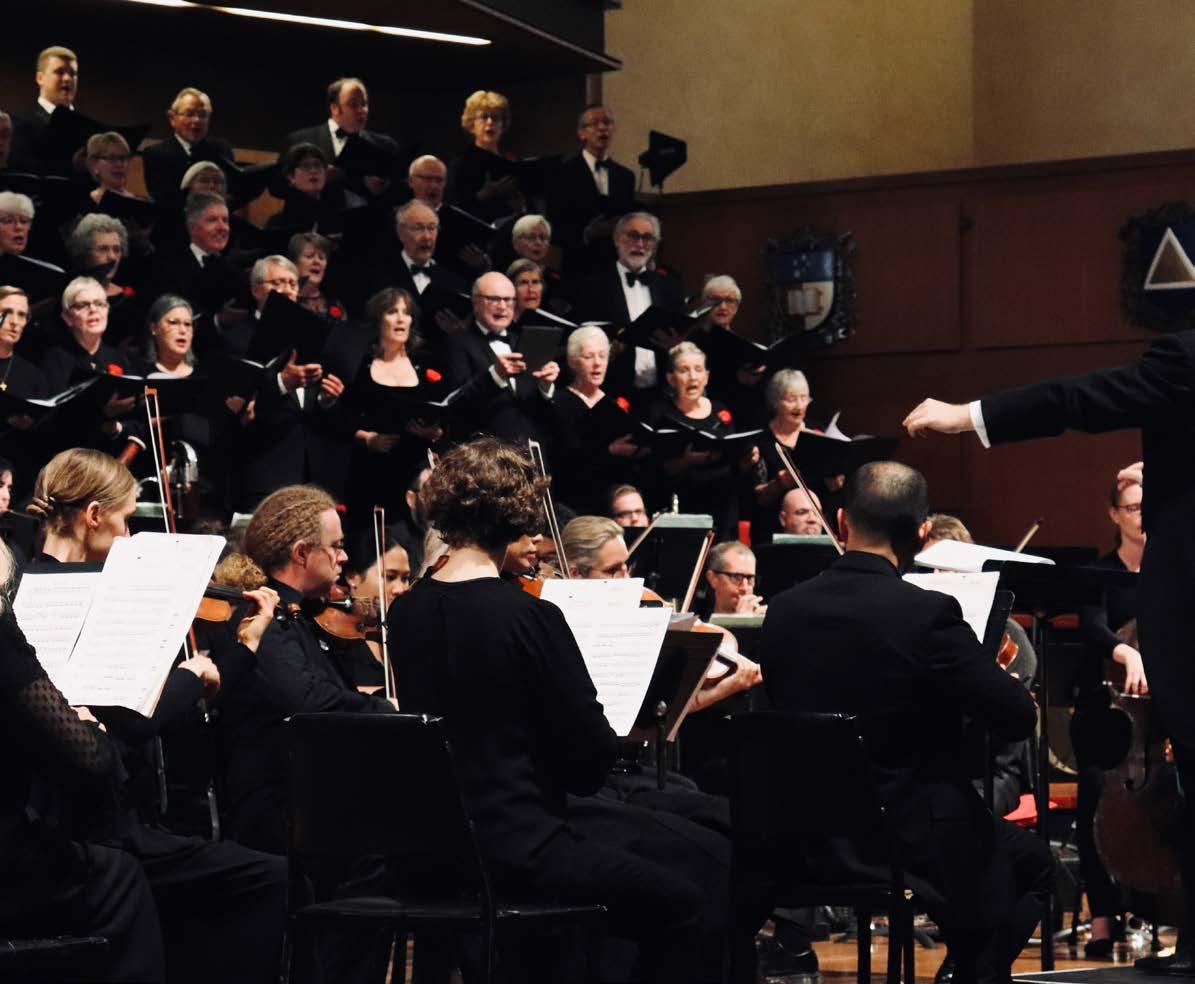
3 minute read
A Common VOICE
For people experiencing loneliness or dealing with a chronic condition, getting together to sing with strangers can be life-changing, writes MYKE
BARTLETT.
Advertisement
Finding a support group doesn’t always mean finding people who all going through the same thing as you. There is often comfort to be found in getting together with a bunch of strangers to work on a common project. In his book Lost Connections, journalist Johann Hari details the positive impact on mental health experienced by people who find communities of purpose — whether that community is market gardening or neighbourhood watch. But there’s one group activity that seems to have particular benefits for wellbeing — singing!
A new memoir, Why We Sing, by singer and community music teacher Julia Hollander details the power of singing in healing, sharing the inspiring story of how singing in a community choir helped her and her daughter Immie, who was born with cerebral palsy. She argues that singing is a gift that shouldn’t be “confined to music-making people, let alone to designated times and places”. In short, everyone can — and should — find someone to sing with.
Community choirs have been popping up all over Australia in recent years. Most famously, the Choir of Hard Knocks brought together people who, for reasons of illness or circumstance, might have struggled to join a choir. Pub Choir brings together ‘tipsy strangers’ and encourages them to belt out popular songs, even if they’ve never sung before. The UWA Choral Society is one of Australia’s more established choirs. They’ve been performing for almost a century but continue to draw new recruits from a range of ages and backgrounds.
Kris Bowtell is the conductor for UWA Choral Society. He says he joined the society as a young singer around a decade ago and has never looked back.
“Choral singing is one of the few things in life where feeling better is pretty much guaranteed,” Kris says.
“It has some of the elements of playing sport, in the sense of being part of a team working together towards a common goal, but it’s communal, not competitive. Everybody wins at the end of the day. It’s also just the most marvellous therapy.”
Kris likens the kick of communal singing to the endorphin rush experienced by long-distance runners. This isn’t just anecdotal — there’s science to back it up. Why We Sing notes that biologists have observed the benefits of “gregarious singing” and-bloody resonance with theirs,” she writes.
Kris agrees that there’s no beating actually being in the room with your fellow choristers.
“I was really struck personally, when we came back together, after having not been able to rehearse for for about four or five months. I didn’t realise how much I’d missed actually seeing these people on a weekly basis. People in wildlife. The brains of starlings who sing together have shown raised levels of endogenous opioids (natural painkillers) and biologists have found that birds are particularly drawn to areas where they can gather in large numbers and sing tunes that are quite different to their usual, solo birdsong. Coming back together to sing has proved to be even more important after the disruptions of the past years.
Julia Hollander writes about how difficult she found it suddenly not being able to sing in choirs when COVID hit. The forced separation of the rolling lockdowns reminded people how important connection and community was and what better way to build an instant connection than start singing?
Some choirs — including the Pub Choir — tried to bridge the gap by hosting online sessions (dubbed the “Couch Choir”), but Julia writes that these efforts just brought home for her that choirs aren’t just about singing but “being present with other people in real time and space.”
“Never again will I take for granted the joy of being immerse in my fellow humans’ sound, melding my flesh- were just so happy to be there, back together.”
Julia’s book aims to help readers understand how singing can help people — whatever their age or background — deal with the trials of modern life, which might include living with a chronic condition. In an age when we are divided by the screens that connect us, choral singing gives people a reason to get together faceto-face. People more accustomed to warbling in the shower might feel shy at first, but there’s comfort in the fact that singing is one activity where there’s no need for awkward small talk.
For Kris, there’s an additional unifying power in singing classical music that has lasted through the centuries. It’s a reminder that, no matter how things change, the joys of belonging to humanity are remarkably consistent.
“One of the works in a recent concert was written almost two hundred years ago. The remarkable thing is, despite being written so long ago, it still speaks to you and it moves you. It makes you think about just how much people remain people.” uwacs.com.au










